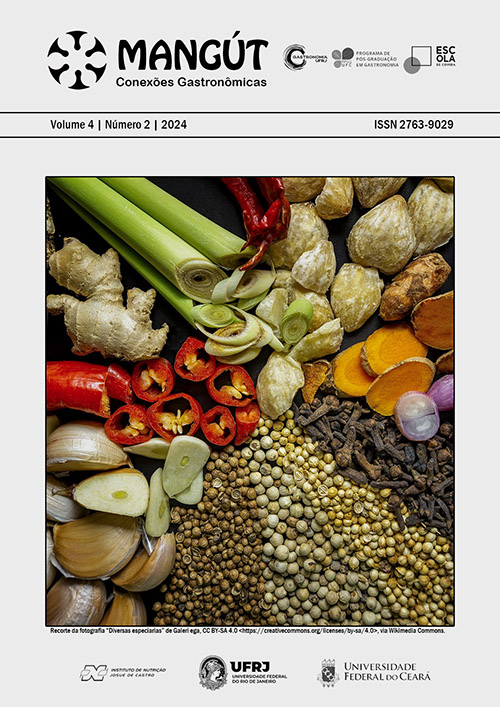Between perceptions and memories: an exploratory analysis of the circulation and consumption of açaí and tapioca in Portugal
DOI:
https://doi.org/10.70051/mangt.v4i2.63392Keywords:
Gastronomy, Traditional indigenous foods, Circulation, Transnationalism, Sustainability, Anthropology of FoodAbstract
The great navigations encouraged the circulation of ingredients. The present work aimed to investigate the motivation of açaí and tapioca consumers in the metropolitan region of Lisbon. Using the exploratory method through urban wanderings and ethnographic observations, consumers of these foods were identified and selected for the research. When Portuguese colonizers arrived in Brazil, they were traditional foods from the food culture of Brazil's indigenous peoples. Its popularity in the international market has been growing, requiring an analysis of this transnational circulation. The results suggest that these foods are consumed mainly by Brazilian immigrants but also by Portuguese citizens and other nationalities due to a set of factors related to (1) a change in eating habits that tends to favor healthier eating, (2) diets, or (3) food sustainability. This work addresses some reflections on consumers of tapioca and açaí in Portugal, establishing the basis for a broader debate on the circulation of these two foods.
Downloads
Published
Issue
Section
License
Copyright (c) 2025 Juliana Ardenghi, Rui Moutinho Sá

This work is licensed under a Creative Commons Attribution 4.0 International License.
Autores que publicam nesta revista concordam com os seguintes termos:
- Autores mantém os direitos autorais e concedem à revista o direito de primeira publicação, com o trabalho simultaneamente licenciado sob a Licença Creative Commons Attribution que permite o compartilhamento do trabalho com reconhecimento da autoria e publicação inicial nesta revista.
- Autores têm autorização para assumir contratos adicionais separadamente, para distribuição não-exclusiva da versão do trabalho publicada nesta revista (ex.: publicar em repositório institucional ou como capítulo de livro), com reconhecimento de autoria e publicação inicial nesta revista.
- Autores têm permissão e são estimulados a publicar e distribuir seu trabalho online (ex.: em repositórios institucionais ou na sua página pessoal) a qualquer ponto antes ou durante o processo editorial, já que isso pode gerar alterações produtivas, bem como aumentar o impacto e a citação do trabalho publicado (Veja O Efeito do Acesso Livre).



